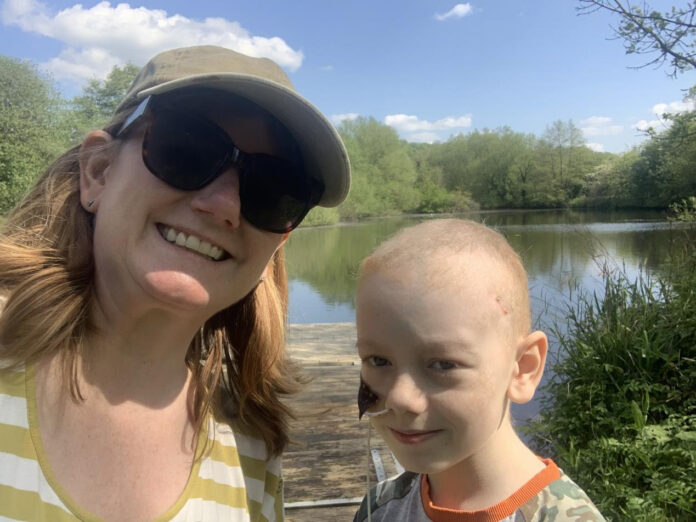new report released today by leading children’s palliative care charity Together for Short Lives estimates that the funding gap for children’s palliative care in England has grown by £15 million in one year, bringing it to £310 millioni. The gap is 70 times smaller than the NHS England’s budget increase in 2024/25 (£22.6bn) and just 0.16% of its annual budget.
The charity has identified the gap in its new report Built to Last? The State of Children’s Palliative Care in 2025 as one of the main reasons for the postcode lottery that families face in getting their child the palliative and end of life care they need. Other factors include workforce shortages and a lack of leadership and accountability to make sure key standards are met.
Across the whole of the UK, Together for Short Lives has found significant differences in the way children’s palliative care is planned and funded (a process known as commissioning). It means that families receive very different levels of support depending on where they live.
Postcode lottery
Access to 24/7 end of life care at home including vital nursing support and specialist advice from a trained consultant, for example, is far too inconsistent from region to region.
From freedom of information requests made of England’s 42 integrated care boards (ICBs)ii, Together for Short Lives found that less than a fifth (19%) formally commission this kind of care. And despite an increase during the last year, a third (33%) of ICBs are still failing to meet this national standard.
In practice, it means that families living in Cheshire and Merseyside caring for a seriously ill child stand a much better chance than families in Devon in having their child die at home, surrounded by their loved ones, if that is what they wish.
Families left feeling abandoned and overwhelmed
Together for Short Lives’ report highlights the impact of the postcode lottery on seriously ill children and their families – many of whom report feeling abandoned and overwhelmed after their child is diagnosed.iii Only half (50%) feel well supported, while nearly half (47%) feel like they have no help with practical or financial matters. Over a third (35%) feel like they don’t get enough emotional or psychological support themselves.
One person who knows first-hand how difficult it can be to access care is mum Clare. Her son Oliver was diagnosed with an aggressive brain tumour in December 2022 at 10 years old. However, in September 2023 following radiotherapy, chemotherapy and a successful surgery, Oliver’s tumour returned, and the family were given the devastating news that there were no further treatment options.

While some elements of Oliver’s palliative care helped the family, like support from their local hospice, when it came to planning Oliver’s end of life experience, things became much harder. After being told that it was proving very difficult to put a care package in place for this to happen, Clare was forced to take on the task herself – instead of spending precious time with her son.
Clare Buchanan, from Greater Manchester, said: “All we wanted for Oliver was for him to be at home for as long as possible, where we shared so many special memories. I wanted Oliver to be able to look out over the fields and hills and see the sun rise and set.
“So, I made a nuisance of myself. I called and pushed and ended up speaking to a friend with a good job at our local NHS Trust to try and get things moving. Ultimately it was because of that and the goodwill of nurses who wanted to help despite the barriers they faced.”
In mid-November 2023, Oliver’s health started to decline. Friends and family took shifts to be with Oliver through the night, and nurses worked extra hours to cover the care he needed.
Clare added: “It was where we wanted him to die, surrounded by the love of his family, the green fields, the sound of nature and just peace. But to get to that point cost a lot. I honestly thought that when your child is dying, you would have 24/7 care at home. But it turns out, that just isn’t the case.
“Most of the time it was done by myself and my family, and a patchwork of goodwill from various nursing care providers. But we never knew if we’d have cover from one week to the next – there was no security.
“In the end, Oliver died peacefully and without pain. It was a good experience if you can describe it as that and I am very aware of how this time can unravel for families, especially without the right support. We count ourselves lucky.”
Clare has written an open letter to the Prime Minister Sir Keir Starmer and is asking others to sign as part of Together for Short Lives’ Built to Last? Securing the future of children’s palliative care campaign.
Nick Carroll, Chief Executive of Together for Short Lives said: “For too long, seriously ill children and their families across England have been failed by a system which has been persistently underfunded and under prioritised. It says a lot that Clare had to fight to have the end of life experience she wanted for her son Oliver.
“The UK Government must act urgently by holding a full review into the way children’s palliative care is planned and funded in England. We know that public finances are under pressure, yet the money needed to fix the issues across children’s palliative care is tiny when compared to the annual NHS England budget.
“What we need is the will of those in power to act – so that mums like Clare can spend less time fighting to get the care their child needs and more time making the most of the short time they have together. If ministers are to achieve their aims of shifting care from hospitals into the community in the next decade, we urgently need a children’s palliative care system that’s built to last.”







